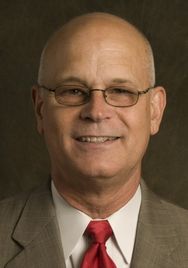Hi, (not you?) | Member Center | Sign Out
- Home
- News
- Business
- Sports
- Life
- Opinion
- Ahora Sí
- Weather
- Traffic
- Video
- Blogs
- Customer Service
Posted: 6:40 p.m. Sunday, June 15, 2014
Texas’ oil, gas regulator refuses to talk to media
Related
By Ramit Plushnick-Masti
Associated Press
HOUSTON —
Texas’ oil and gas regulatory agency has instituted a blanket policy barring staff members from doing media interviews, raising questions about transparency as the state grapples with the intricacies of one of the largest energy booms in decades.
The Texas Railroad Commission, which has three commissioners leading one of the largest state agencies of its kind in the country, approved the policy in August, about a year after Milton Rister took over as the agency’s executive director. Since then, all media inquiries have been funneled through a spokeswoman who responds via email and bars any direct access to staffers.
The commission, which also regulates pipelines and mining, devotes much of its time to issuing permits for oil and gas drilling and production, ensuring that wells are safe, and investigating complaints or problems at those sites.
For a Texas agency to ban all media interviews is unusual. Typically, the media relations department is not the source of information but acts as a liaison to connect journalists with the staff members they need to speak with for a particular story.
The Texas Commission on Environmental Quality, a state agency whose responsibilities often overlap with the Railroad Commission, routinely grants interviews with staff members who are scientists and experts. The General Land Office, which is responsible for offshore oil spill cleanup, also allows staffers to speak with the media.
Agency petroleum experts, engineers and other qualified staffers can help explain the work being done at the agency, its oversight, the status of its investigations and the quality of that work. Having information funneled through a spokeswoman makes the origin and credibility of the responses unclear.
“There needs to be some rationale behind the Railroad Commission or any agency to outweigh the public’s right to be informed,” said state Rep. Trey Martinez Fischer, a San Antonio Democrat who is on the Texas Legislature’s Transparency in State Agency Operations Committee.
Before Rister’s appointment, the Railroad Commission routinely made staffers and the agency’s executive director — at the time John Tintera — available for interviews. However, that changed under Rister just as oil and gas production boomed. Since his appointment in September 2012, Texas has seen crude oil production rise from 53.2 million barrels a month to 62.4 million barrels, an increase of more than 17 percent.
The new policy states that Rister or the director of public relations can approve interview requests. But Ramona Nye, the spokeswoman, said in an email that all such decisions are made by Rister and “he says there will be no staff interviews.”
In keeping with the policy, Rister declined repeated requests to be interviewed for this story. He also refused to explain the reasoning behind the policy.
Two of the elected commissioners also declined to comment for the story, and a third was on vacation. A spokeswoman for Commissioner Christie Craddick offered to have an off-the-record conversation to discuss the topic, but The Associated Press declined.
The policy also states that if permission is granted for an interview, “the employee shall be responsible for any misinformation, misquotes, misinterpretations or misrepresentations conveyed by the employee. Failure to comply with this policy could result in disciplinary action, up to and including dismissal.”
“That would appear to have a deterrent effect. Those are some significant consequences, and any employee would be mindful of the consequences,” Martinez Fischer said. “I don’t know if that fosters openness and deliberation.”
Meanwhile, the drilling boom has brought increased scrutiny because it is largely attributed to new hydraulic fracturing techniques that allow drillers to extract oil and gas reserves that were once out of reach. Critics say the method can contaminate groundwater. The industry says the technology is safe.
When allegations of groundwater contamination from fracking have arisen, the Railroad Commission has refused to put its engineers and petroleum experts on the phone to respond to questions. Instead, as in all issues, questions must be emailed to Nye, who talks to staffers and provides their answers. It is unclear who is answering the questions, where they rank in the agency and how close they are to the case.
Lynne Bradley, the government relations director for the American Library Association, a nonprofit that fights for public access to information, said the Railroad Commission’s policy is problematic.
“When we have seen agencies that prohibit the flow of information, we worry that there will be inadequate public attention and public scrutiny of what that agency is doing,” Bradley said.
She added that responding to questions via a spokeswoman is unacceptable.
“You can’t really know where that information is coming from. One has to make assumptions that it’s authentic information,” she said.
More News
News
Entertainment
Social Media
Services
Advertisers and Sponsors
Marketplace
© 2014 Cox Media Group. By using this website,
you accept the terms of our Visitor Agreement and Privacy Policy, and understand your options regarding Ad Choices .
.
Learn about careers at Cox Media Group



You're Almost Done!
Select a display name and password
{* #socialRegistrationForm *} {* socialRegistration_displayName *} {* socialRegistration_emailAddress *} {* traditionalRegistration_password *} {* traditionalRegistration_passwordConfirm *}Tell us about yourself
{* registration_firstName *} {* registration_lastName *} {* registration_postalZip *} {* registration_birthday *} {* registration_gender *} {* agreeToTerms *}